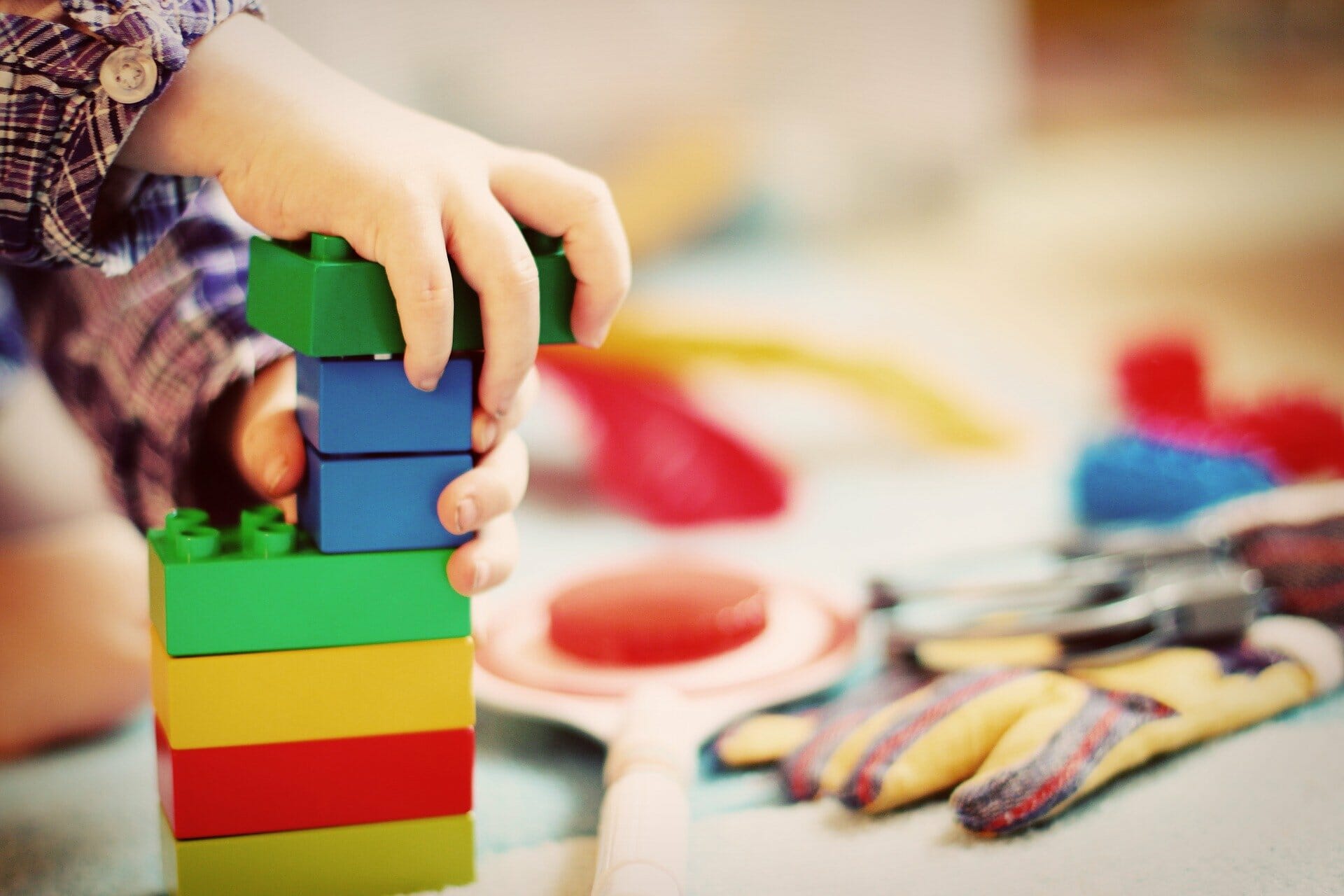Children who develop typically learn language and executive functioning skills through something that comes naturally to them: play and exploration. However, for a child with a developmental disability, those skills can be challenging, making emphasis on play even more crucial. Here we explain why play is important for speech and language development, turn-taking, social, and other skills.
Play can be expressed in a number of ways. It can be a child acting out certain routines from daily life, such as pretending to go shopping or pretending to have a picnic. Play can also focus on inventing new scenarios and imagining new ways to solve problems. For example, if a child is using a set of blocks to build a tall tower, he may need to plan out what type of blocks he needs or what combination of blocks would help make the tower tall. Additionally, the tower might topple during the first attempt, forcing the child to try again. Play of this type helps teach patience and learning through trial and error.
Play activities are rich in language opportunities. Playing with objects helps teach nouns, and nouns are often learned together in categories. For example, if a child is having a pretend picnic, he learns or is motivated to learn the different names of foods. Similarly, if a child is playing “house,” he is excited to learn the names for clothing items, furniture, and the different rooms within a house. Vocabulary is not only learned through grouping items in categories, but also from going from general to more specific. For example, once a child understands the concept of a car, he is then able to learn about its parts – wheels, windows, doors, etc. Play not only builds nouns but also allows the child to learn verbs/actions. He can make animals fly, give dolls something to eat, or simply make cars go.
Lastly, play teaches social skills. If two children are engaged in a shared activity, they can learn the importance of taking turns. Turn-taking isn’t just about sharing an item, like a toy, but it also teaches a child how to have back-and-forth dialogue. Children will also have disagreements with each other about how to play, which then forces them to resolve a conflict.
For children with language delays or developmental delays, play does not always come easily. It is not always obvious that a toy apple is something to pretend to eat or that a toy airplane is something you pretend to fly. Children may become hyper-focused on the minor details of an object and not how that object is used. Additionally, if a child has physical limitations, he may not be able to explore objects thoroughly or engage in play routines that require him to move about, and his disability might limit his opportunities to play with other children.
For parents, it can be very frustrating when a child is not meeting milestones – therapy is important, but reinforcing the concepts from therapy in everyday life has a big impact. We encourage parents to model play skills for children, especially those for whom play is difficult. Sit down on the floor with kids and model how different objects might be used. Have the child take turns with you. Talk about what you are doing with different objects (“I’m making a pizza”) and also talk about what the child is doing (“You made the car crash!”). And finally, while iPads and smartphones have been a great source of entertainment and education, they are not a replacement for play because they offer limited opportunities when it comes to learning concepts and do not often provide opportunities for a child to learn patience through problem-solving.
Your child’s speech therapist can make recommendations for play opportunities suited to your child’s age and skill level. Unsure if your child needs speech, occupational, or physical therapy? Book a free consultation with one of our Kid’s Creek therapists today.
Photo Courtesy Pixabay/Title Added








